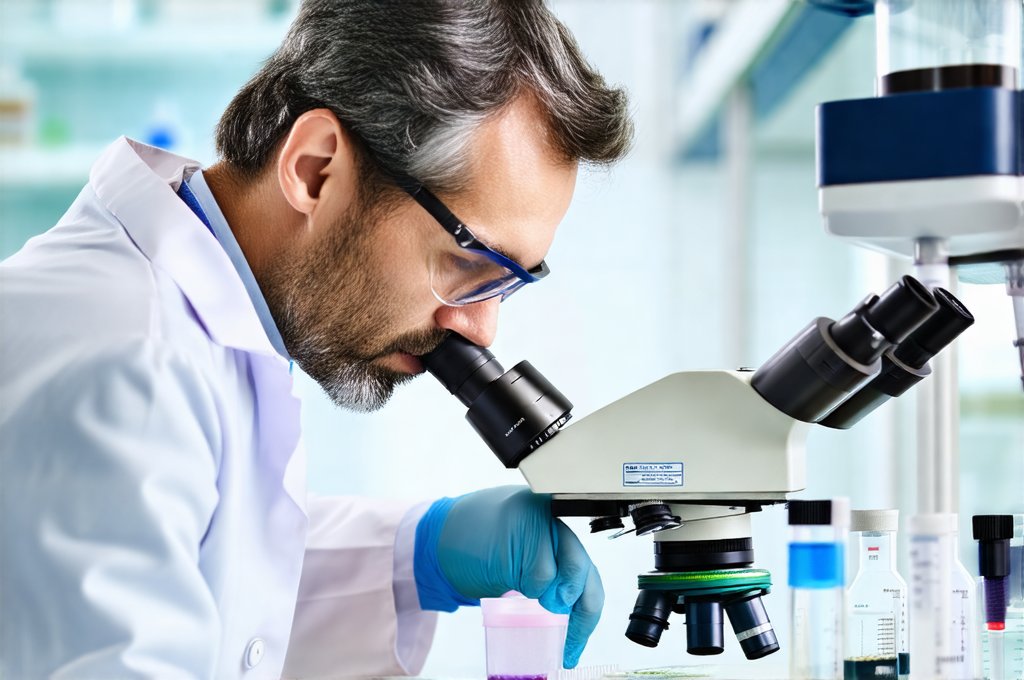The intricate dance between protein intake and kidney health is often misunderstood. For individuals managing chronic kidney disease (CKD), or even those proactively aiming for optimal renal function, navigating dietary protein can feel like walking a tightrope. Traditional recommendations often focus on reducing overall protein consumption, but this approach doesn’t always address the core issue: how that protein is metabolized and the subsequent burden placed on the kidneys. The type of protein, its digestion process, and ultimately, the metabolites produced are far more significant than simply the total quantity consumed. Many people with kidney concerns fear protein because they associate it with worsening their condition, but a nuanced understanding reveals opportunities to support renal health through strategic dietary choices – focusing not just on less protein, but on smarter protein utilization.
This article delves into the emerging science of renal-friendly protein splitting strategies. It’s about moving beyond blanket restrictions and embracing approaches that minimize metabolic stress on the kidneys. We’ll explore how different protein sources are processed by the body, how specific digestive enzymes play a role, and how we can optimize our dietary choices to reduce the formation of uremic toxins – waste products that accumulate in individuals with impaired kidney function. The goal isn’t about eliminating protein; it’s about ensuring that the protein we do consume is utilized efficiently, leaving behind fewer harmful byproducts and supporting long-term renal well-being. This involves looking at bioavailability, digestibility, and how to support optimal gut health for enhanced protein absorption. If you are concerned about your kidney function, understanding why some UTIs don’t show typical signs can be helpful in early detection and management.
Optimizing Protein Digestion & Absorption: Beyond Total Quantity
The kidney’s role isn’t directly in protein metabolism itself; it primarily deals with the waste products of that process. When we digest protein, it breaks down into amino acids. These amino acids are then used to build and repair tissues, create enzymes, hormones, and other essential compounds. However, this breakdown also generates nitrogenous waste, such as urea, which the kidneys must filter from the blood. In healthy individuals, this is a seamless process. But in CKD, the kidneys’ ability to effectively remove these wastes is compromised, leading to their accumulation – uremic toxins. This is where protein splitting strategies come into play. Focusing on easily digestible proteins and supporting optimal digestive function can significantly reduce the workload of the kidneys. Considering best protein options that don’t aggravate urge is also key.
- Protein Source Matters: Animal proteins generally produce more nitrogenous waste than plant proteins, though this isn’t a universal rule. The amino acid composition also impacts waste production; some amino acids are metabolized into more urea than others.
- Digestibility & Bioavailability: Highly digestible protein sources (like eggs or whey) allow for greater absorption of amino acids with less undigested material contributing to gut fermentation and subsequent toxin generation. Conversely, poorly digested proteins can lead to increased gut microbial activity, creating potentially harmful metabolites.
- Gut Microbiome’s Role: A healthy gut microbiome is crucial for efficient protein metabolism. Certain bacteria can break down undigested protein in the colon, producing toxins like indoles, phenols, and hydrogen sulfide. Promoting a diverse and balanced gut flora through dietary fiber and probiotics can help minimize these harmful metabolites.
The key takeaway isn’t necessarily to restrict overall protein intake drastically, but to prioritize quality sources and ensure efficient digestion and absorption. This reduces the amount of waste product reaching the kidneys and promotes better utilization of amino acids for essential bodily functions. A carefully planned diet that focuses on easily digestible proteins coupled with a thriving gut microbiome is far more effective than simply reducing protein across the board.
The Role of Enzymes & Gut Health in Renal-Friendly Protein Metabolism
Enzymes are biological catalysts that speed up chemical reactions, and they play an absolutely critical role in protein digestion. From pepsin in the stomach to proteases in the small intestine (trypsin, chymotrypsin), each enzyme breaks down proteins into smaller peptides and eventually amino acids. Insufficient enzyme production or impaired digestive function can lead to incomplete protein breakdown, resulting in increased fermentation in the gut and higher levels of uremic toxins. Supporting optimal enzymatic activity is a cornerstone of renal-friendly protein metabolism.
Furthermore, gut health directly impacts protein absorption and toxin production. A compromised gut barrier allows undigested proteins to enter the bloodstream, potentially triggering inflammation and increasing kidney stress. Conversely, a healthy gut lining with a diverse microbiome efficiently absorbs amino acids while minimizing harmful metabolites. Strategies for enhancing gut health include:
– Fiber Intake: Soluble fiber from fruits, vegetables, and legumes nourishes beneficial gut bacteria.
– Probiotics & Prebiotics: Supplementing with probiotics or consuming prebiotic-rich foods (like garlic, onions, and asparagus) can help restore a balanced microbiome.
– Reducing Inflammation: Minimizing processed foods, sugar, and inflammatory fats supports overall gut health.
By addressing both enzymatic function and gut health, we create an environment that optimizes protein metabolism and minimizes the burden on the kidneys. This holistic approach is far more effective than simply focusing on reducing protein intake alone. It’s about working with the body’s natural processes to support optimal renal function. Also consider evening digital detox strategies to improve overall health and wellbeing.
Protein Splitting Techniques & Dietary Strategies
One powerful technique involves strategically combining foods that aid digestion. For example, pairing protein sources with pineapple (containing bromelain, a protease enzyme) or papaya (rich in papain, another proteolytic enzyme) can enhance protein breakdown. Similarly, incorporating ginger into meals may improve gastric emptying and promote better enzymatic activity. Fermented foods like kefir or yogurt also contribute beneficial enzymes and probiotics to support gut health and protein digestion.
Another crucial aspect is mindful portion control. While adequate protein intake is essential, overwhelming the digestive system with large portions can lead to incomplete breakdown and increased toxin production. Smaller, more frequent meals containing moderate amounts of protein are generally better tolerated than fewer, larger meals. Additionally, cooking methods play a role; steaming or poaching proteins tends to be gentler on digestion compared to frying or grilling.
Amino Acid Supplementation: A Targeted Approach?
The idea of supplementing with individual amino acids – rather than whole proteins – is gaining traction in renal nutrition. This approach aims to provide essential amino acids without the associated nitrogenous waste from digesting complete proteins. For instance, providing branched-chain amino acids (BCAAs) can support muscle protein synthesis while potentially minimizing urea production. However, this strategy requires careful consideration and should be implemented under the guidance of a healthcare professional.
- Essential vs. Non-Essential Amino Acids: Supplementing with essential amino acids (those the body cannot produce on its own) is generally safe.
- Individual Needs: The optimal amino acid profile varies depending on individual factors such as kidney function, dietary habits, and activity level.
- Potential Risks: Excessive supplementation can still place a burden on the kidneys, so careful monitoring is crucial.
Amino acid supplementation isn’t a replacement for a well-balanced diet but can be a valuable tool when used strategically and under professional guidance to optimize protein metabolism and minimize kidney stress.
Monitoring & Individualized Plans
Ultimately, the most effective renal-friendly protein splitting strategy is one tailored to the individual. Regular monitoring of kidney function (through blood tests like creatinine and urea nitrogen) is essential to assess how dietary changes are impacting renal health. Working with a registered dietitian specializing in renal nutrition can provide personalized guidance and support.
- Regular Blood Tests: Track kidney function markers to evaluate the effectiveness of dietary interventions.
- Dietary Adjustments: Modify protein sources, portion sizes, or supplemental strategies based on individual responses.
- Holistic Approach: Consider other lifestyle factors like hydration, exercise, and stress management, which also play a role in renal health.
If you are unsure about your kidney function it is important to determine does cystitis always show up on tests?
The information presented here is for general knowledge and informational purposes only, and does not constitute medical advice. It is essential to consult with a qualified healthcare professional for any health concerns or before making any decisions related to your health or treatment.





















